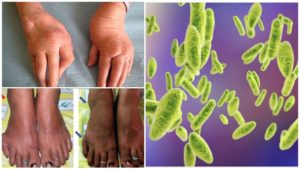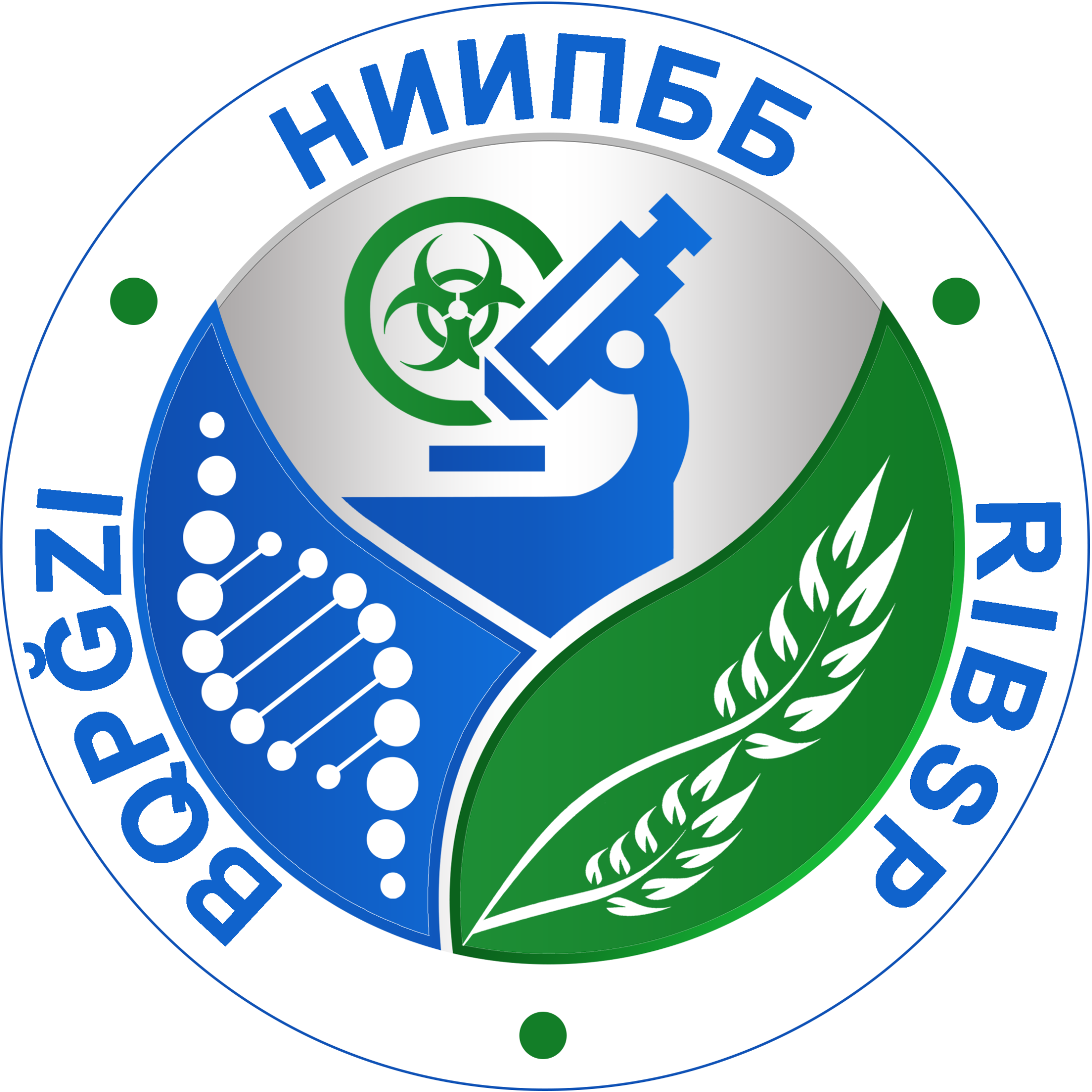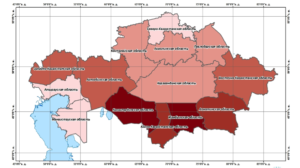Brucellosis – is a zoonotic disease transmitted from sick animals to humans, characterized by multiple lesions of human organs and systems, and due to social danger brucellosis is included in the list of quarantine diseases. For the first time in 1886 by the English scientist Bruce was discovered this disease. In his honor they were named Brucella, and the disease caused by them – Brucellosis.
To date, 10 species of brucellosis agent are known, among which B. melitensis, B. abortus, B. suis and B. canis are risks to human health. And B. melitensis causes the most severe and acute form of brucellosis, and in 80-90 % of cases is responsible for the disease of people with this infection. In humans, brucellosis is mainly characterized by acute inflammatory processes as well as numerous symptoms of influenza like disease. Lack of adequate treatment can lead to death or disability of the patient. Most cases of human brucellosis is result of professional contact with bacteria.
 Illustrative photo: from open sources
Illustrative photo: from open sources
Brucella can penetrate the body through microscopic damage on the skin, mucosa of the conjunctiva of the eyes, digestive and respiratory tracts. Most often, a person is infected by eating unboiled milk, meat, untreated water, while cutting of beef, treating the skins of sick animals and inhaling dust containing microscopic wool or manure residues. It is not difficult to guess that the risk of falling ill is highest in villagers who work with livestock and animal produce.
Brucellosis affects people on all continents, but in some parts of the planet the possibility of infection is highest. Kazakhstan is one of the top 25 hyperendemic brucellosis states of the world, where about 1900 new cases of brucellosis in humans are detected annually. This situation is directly related to the high prevalence of brucellosis among small cattle and cattle.
Brucellosis is the most common infectious zoonotic disease among agricultural animals of Kazakhstan, annually, for the fight against which about 90 % of budget funds are appropriated to republican veterinary laboratories.
On the background of the critical epidemic situation on brucellosis, the task of protecting the health of the population from this infection is strategic importance for our country. It is known that the complete eradication of brucellosis among farm animals is known to be the best way to prevent this disease in humans.
Vaccination is known to be the most effective way to eradicate of brucellosis of farm animals. The problem is that there are currently no effective and safe vaccines against brucellosis of cattle, and therefore studies aimed at them manufacture are relevant and needed at the Research Institute for Biological Safety Problems (RIBSP).
For the first time, in the last 25 years, completely safe and effective vaccine against cattle brucellosis based on influenza viral vectors has been developed at RIBSP, which in its technical and consumer characteristics is significantly superior to commercial preparations. Moreover, the possibility of effective use of this vaccine has been experimentally confirmed for small cattle.
The results of the studies are published in the international rating journals and reported at the international conferences. At present, the vaccine is registered in the Ministry of Agriculture of the Republic of Kazakhstan and is in the stage of postregistration tests.
Currently, the technology for manufacturing of vector brucellosis vaccine for humans on the base of recombinant influenza virus expressing immunodominant brucellosis proteins: L7/L12 (ribosomal) and OMP-16 (membrane, surface), which meeting the requirements of the national and the international standards has been developed at RIBSP. Method of its application is worked out and safety and immunogenicity of vaccine on laboratory animals is studied. The developed vaccine can be recommended for further preclinical and clinical tests, with successful providing of commission tests on laboratory animals for safety and protectivity of vaccine.
In the future, licensing of new vector brucellosis vaccine for humans is expected nationally and internationally both in Kazakhstan and abroad.
This development is primarily developed for the specific prevention of brucellosis in humans (veterinarians, animal workers’ herd managers, slaughterhouse workers laboratory staff, villagers) in regions with high prevalence of infection among animals. In addition, a national mobilization stock of vaccine can be created for emergency situations, including in case of terrorist threat as a result of the commercialization adjusting.
For consultation, contact for RSE “Research Institute for Biological Safety Problems” SC MES RK by phone +7 (726-36) 7-22-28,
by e-mail: ribsp@biosafety.kz


